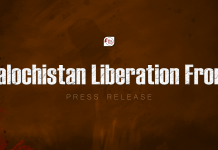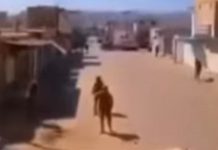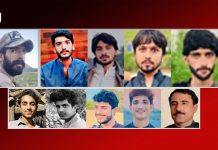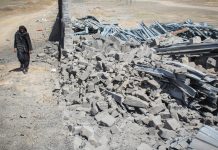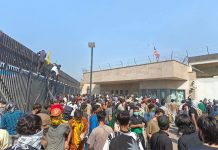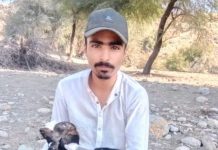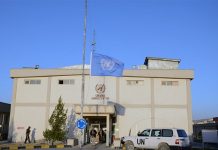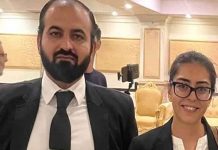The Kech literary festival has finally kicked off in Turbat city of district Kech. Hundreds of participants – including women and children – from different walks of life attended the festival. Book fairs and other gatherings were also organized for the attendees.
The festival began with a discussion against the rampant substance abuse in Balochistan. A special panel comprising of Haji Barkat Buledi, head of a local anti-drug campaign, Khalil Tigrani, Dr. Afzal Baloch other prominent individuals highlighted the ubiquitous drug usage in Balochistan, and what measures could be taken to put an end to it.
The panel said that widespread drug abuse has paralyzed the society – it is impairing the cognitive abilities of the people. They said that the youth are rigorously striving to eliminate substance abuse from their societies, and this struggle must continue. They said that the government has failed to tackle substance abuse in Balochistan and this inaction has further heartened the drug peddlers to boost their business.
The literary festival formally began with a book fair and other art exhibitions. Attendees were presented with a variety of books from various genres like fiction, history and self-help. Grafitti arts, sand arts and wall paintings were also a unique feature of the festival. Poetry and musical segments were also conducted to entertain the participants. The festival administration has said that the musical functions will continue for a significant part of the night.
Another literary festival was also held in Hub Chowki on Sunday where young artists like Mohammad Baloch and Rehmat Shah performed before a significant crowd. A panel discussion was also held where local academics discussed the history of Lasbela. A book launch was also a prominent feature of the festival.
It is pertinent to mention that literary festivals are a rare undertaking in Balochistan, a region that hosts a unique and captivating culture to the foreign eyes. Balochistan’s music is a versatile mixture where one can find serene folk music – played mostly in the background of handmade acoustic contraptions – as well as pop and jazz music.
Balochistan also houses a significant number of respected poets and authors. The Balochi and Brohi poetry has a significant fan following in the region where the locals both speak and understand the languages. Revolutionary poems, Ghazals and historical epics are among the most liked genres in poetry in Balochistan.
The Baloch youth also share an incomparable love for books – a unique feat for an area where only 2% of the youth find their way to higher education. Books by Baloch authors are widely read and distributed. Other than Balochi and Brohi, Urdu and English are also among the widely read languages in Balochistan. Owing to the interest of the youth, the presence of books in the English language has spiked in the past few years in the books shops and public libraries of Balochistan.
Government libraries are a rarity in Balochistan – the number of functioning libraries can be counted on the fingers of one hand. The government has also done little to provide libraries for the Baloch youth, and this inaction has prompted the youth to take it to themselves to construct functioning libraries. A group of five bibliophilic friends in Wadh recently led an enterprise of constructing libraries in their town Wadh. They secured the donations, got the government approval and completely renovated a former drug den into a functioning library. Their endeavours received the endorsement of world-renowned Brazillian author Paulo Coelho, who tweeted: “Send books to Balochistan, they’re building reading rooms.”
Related: Baloch youth are promoting book reading in Balochistan, receive the endorsement of Paulo Coelho
Similarly, the Baloch students in Mashkay also built a functioning library all by themselves. The library – which seemed a distant dream – is now a haven for the book-loving youth of Mashkay. It holds an astounding 2500 books from different genres like fictions, Islamic history, biography and general knowledge.
The sense of self-help has gripped other areas of Balochistan as well. Disappointed by the government’s negligence of their pleas, the civilians in Panjgoor took it to themselves to repair and construct roads and build a school. Due to the non-availability of schools in the region, the students were forced to sit and study in the open in the chilly winter and blistering summer days. The locals, fed up with the government inaction, finally decided to construct a building – they raised the funds to finance the construction and formally began the work.
Related: Civilians take it to themselves to repair roads and build schools













